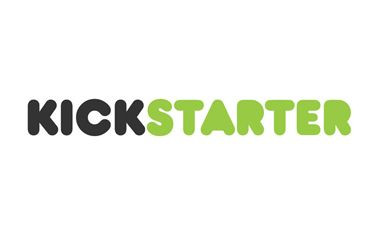Angels In The Tech Field: Crowdfunding Helps Entrepreneurs Find Big-Money Investors

A hearing-aid startup that raised $2.5 million in its third round of financing. A digital-storage innovator that raised $6 million in its first round. A wearable screen-and-headphone startup that raised over $3.4 million in its second round of financing.
These are just a few standout examples of tech startups whose small-donor crowdfunding campaigns on sites like Kickstarter and Indiegogo have attracted the attention of big-money venture capitalists.
Raising money is an important step for entrepreneurs, but with crowdfunding efforts, it’s ultimately not the money that matters to investors, says Dan Roberts, director of business development and venture screening at Tallwave, a lending venture development based in Scottsdale, Arizona.
“[A successful campaign] gives a sense of market validation,” Roberts told International Business Times. “It does impact my view, not from an economic standpoint, but more from a market-validation aspect.”
“The money is the least valuable of the benefits," said Slava Rubin, CEO of San Francisco-based Indiegogo. "You get market validation, more promotion, a lot more exposure.”
Rubin has seen many companies gain major funding after running campaigns on his site. Health-sensor company Scanadu Scout, for one, raised $1.6 million on Indiegogo, and then $10 million in venture funding. Silicon Valley startup iHear Medical completed a successful Indiegogo campaign a month ago, raising $240,000 by taking pre-orders for its $200 hearing aid, which the company plans to start shipping in the second half of 2014. Just this week, the company announced that its third round of financing has brought the total capital raised to $2.5 million.
But the typical system on small-donor sites, with entrepreneurs offering backers rewards like T-shirts or early-bird product releases in exchange for funding, works well only for commercial consumer-based startups, Roberts noted. Business-to-business (B2B) tech startups, companies that produce back-end or business software like customer relationship management systems (CRM), don’t fit the current crowdfunding models.
That’s why equity crowdfunding sites are an important development in this space, says Roberts. The Securities and Exchange Committee (SEC) is currently reviewing changes to the JOBS Act of 2012 that might allow retail investors to fund small tech companies in exchange for stocks instead of rewards.
Equity crowdfunding could benefit B2B startups, but could also have risks. Venture capitalists may be wary of putting money into a company with too many individuals who expect to have a say in the company's direction.
“Lots of [backers] can be a red flag for investors,” said Roberts.
Even if the SEC approves equity crowdfunding, David Gallagher, communications specialist for Kickstarter, doesn’t see his company entering that arena.
“People back projects on Kickstarter because they're excited about them, not because they think the project has a good shot at being profitable," Gallagher said. "If that were the standard, we think the range of projects on Kickstarter would be much narrower. We recognize that lots of things are worth doing even though they aren't going to make money for anyone involved.”
But where Kickstarter is reluctant, Indiegogo is more open to the possibilities--at least tentatively.
“At this point, it's too early to tell how Indiegogo will incorporate the JOBS Act into our platform,” Rubin said. “Indiegogo has been strongly in favor of equity crowdfunding since we pioneered perks-based crowdfunding in 2008. We are actively involved with the SEC and other key stakeholders, but we will need to learn more about the final details before deciding our next steps.”
“In the end,” Roberts says, “[crowdfunding] will be a benefit because it gives more access to capital.”
More access means more money for companies that traditionally have a hard time gaining early capital. Manufacturing companies and hardware companies are known to have high costs of entry, a barrier they usually have to overcome. That stage is often called the “Valley of Death.” But Indiegogo and Kickstarter, among many other crowdfunding platforms, offer those startups a way to gain that capital and begin their projects, securing their longevity.
Investors are seeing this as a way to mitigate risk, says Rubin. Since crowdfunding backers pre-order products, investors and entrepreneurs alike get to use the normally very tough time as a period to find the right market, test marketing strategies and create relationships with clientele.
When it started its crowdfunding campaign on Indiegogo, iHear Medical was hoping to gain future VC backing. “It was part of the plan,” said Adnan Shennib, president and founder, “but you are never sure.”
In fact, iHear blew past its expectations, gaining almost 1,000 customers in the six-week campaign. “We are sold out for 2014,” Shennib said, confirming why he took the venture- capital funding. “We want to be better prepared to serve customers.”
© Copyright IBTimes 2024. All rights reserved.



















